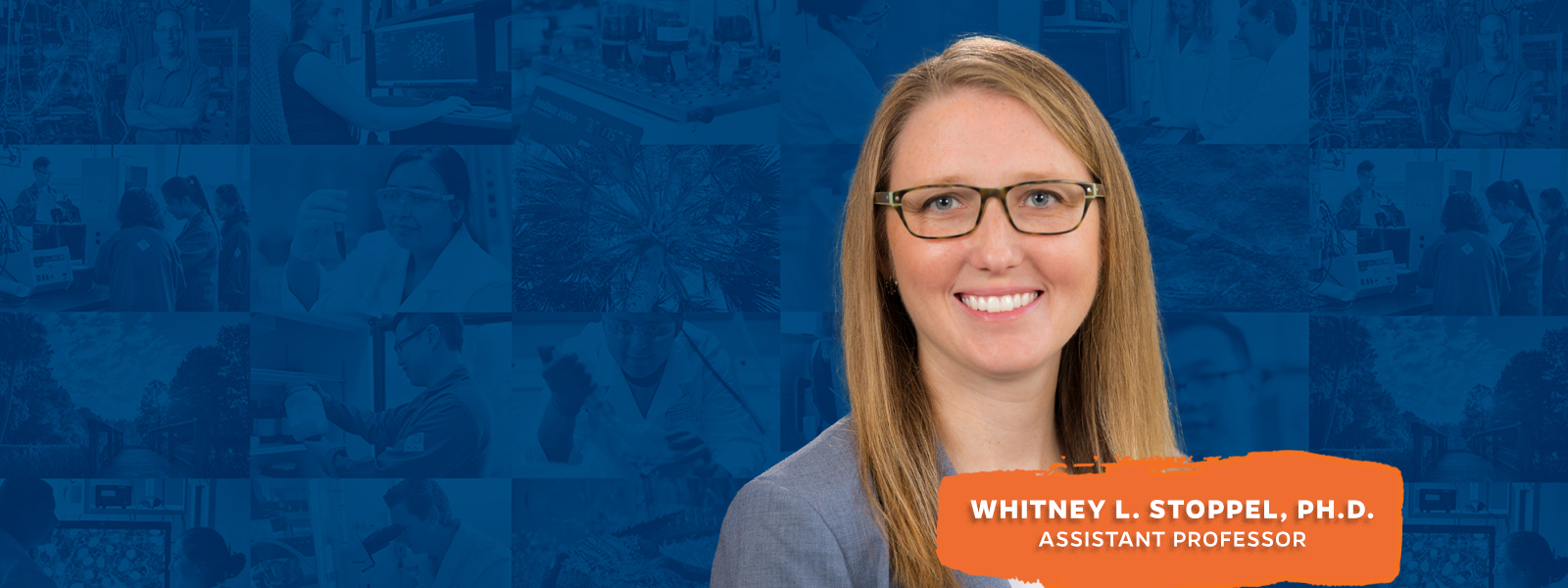Whitney L. Stoppel, Ph.D., an assistant professor in the University of Florida Department of Chemical Engineering, was awarded a Peer Reviewed Medical Research Program (PRMP)/Discovery Award from the Department of Defense (DoD) to develop all-natural, cost-effective, and pathogen-free oxygen carrying particles.
Oxygen is carried in our blood by a protein called hemoglobin which is inside red blood cells. Following a traumatic injury or in patients with other medical complications, the blood may not be able adequately deliver oxygen to the tissues throughout the body. In the hospital, patients can get a blood transfusion; however, there are situations which may prevent a patient from receiving a blood transfusion (e.g., medical complications, religious reasons) or other supply chain complications that lead to shortages in pathogen- or virus- free blood donations.
“We aim to address gaps in the field of oxygen therapeutics through the development of an all-natural silk protein-based material with controllable and tunable oxygen delivery capabilities using salmon hemoglobin. While we are currently focused on therapeutic oxygen delivery in patients, there may be additional applications for use in transplant organ preservation or other pharmaceutical delivery applications,” said Dr. Stoppel. “Our goal is to design and develop the particles so that they do not require refrigeration. This feature will make the technology easily adaptable to a broad range of places and patients.”
Dr. Stoppel is spearheading the project with Co-PI Bruce D. Spiess, MD, FAHA, in the Department of Anesthesiology at the UF College of Medicine. Dr. Spiess is a world-renowned expert in the field of artificial oxygen carriers and alternatives to blood transfusions. Together, they will investigate how silk and salmon hemoglobin can be combined to improve the ability of the all-natural nanoparticles to deliver oxygen at clinically relevant rates.
Silk fibroin is a natural protein found in the cocoons of silkworms. The body can degrade it into simple protein building blocks without any extra efforts or adverse side effects. Silk fibroin nanoparticles make good carriers for bioactive molecules as shown by many others in the field. However, without the addition of a hemoglobin molecule or other artificial oxygen carrier, they don’t aid in oxygen delivery. The researchers aim to incorporate hemoglobin from fish into the silk particles. Fish use their hemoglobin to help them control their buoyancy in addition to keeping their bodies alive. The innovative part of this project is the unique combination of a novel fish hemoglobin with an all-natural silk-based particle.
The Stoppel Lab builds dynamic and adaptable natural biomaterials that can be leveraged to alter the behavior of cells both in vitro and in vivo for repair and rehabilitation of damaged or diseased tissue.

